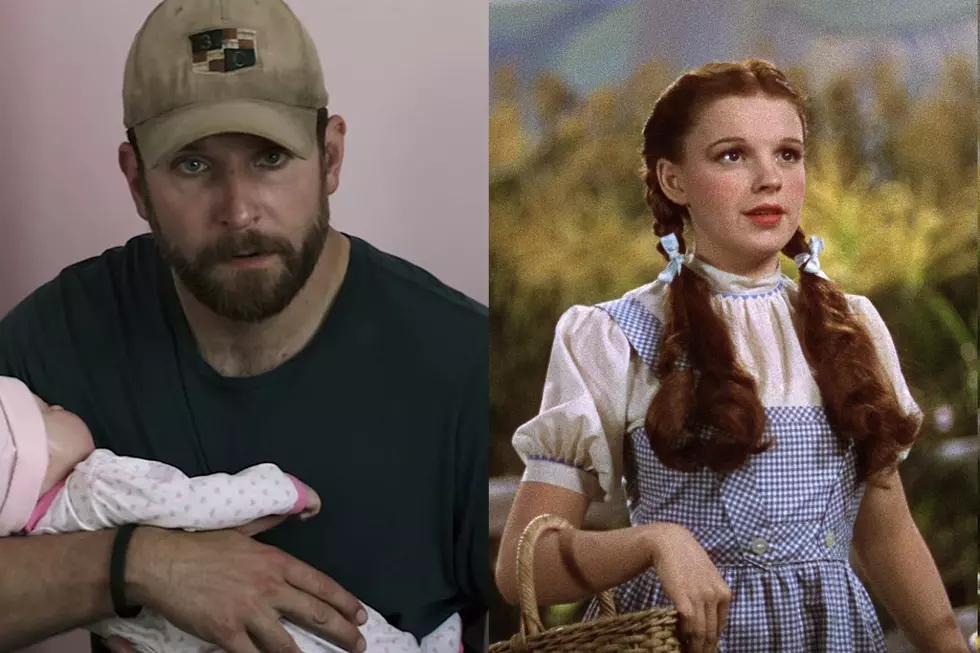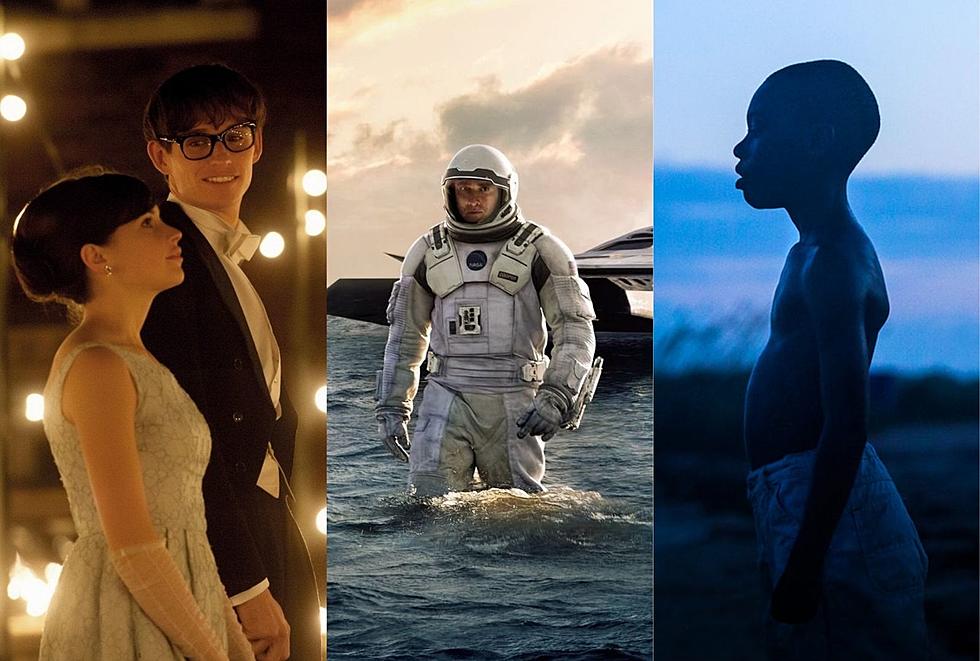
How to Make an Oscar-Winning Biopic In Five Easy Steps
In cinematic circles, there are a few names for this time of year. Awards-minded individuals call the fall “Oscar season” because this is when the campaigning for little gold men gets particularly hot and heavy. The late film critic Roger Ebert used to call it “good movie season,” because the byproduct of all that campaigning was all of the studios’ most promising and intellectually stimulating titles getting released together in the span of two months. In recent years, I’ve started to call the fall by a different name: Biopic season, because barely a week goes by without a new biographical film.
2014’s biopic season kicked off a few weeks ago with ‘The Theory of Everything,’ starring Eddie Redmayne as brilliant physicist Stephen Hawking. This week ‘The Imitation Game’ opens; that features Benedict Cumberbatch as brilliant mathematician Alan Turing. Next week there’s ‘Wild,’ with Reese Witherspoon as author Cheryl Strayed, who hiked the 2,650-mile Pacific Crest Trail all by herself. Later in December there’s ‘American Sniper,’ starring Bradley Cooper as Chris Kyle, “the most lethal sniper in U.S. history,” Angelina Jolie’s ‘Unbroken,’ about World War II hero and Olympic champion Louis Zamperini, ‘Selma,’ about Dr. Martin Luther King, Jr., ‘Mr. Turner,’ about the pre-Impressionist painter J.M.W. Turner, and ‘Big Eyes,’ about the American painter Margaret Keane, whose work was credited to her husband for years.
Biographies are one of the oldest genres in Hollywood, but they’ve seen a resurgence in recent years, in large part because they’ve suddenly become popular again with Oscar voters. Three of the last four Best Actors (and three of the five Best Actor nominees last year), and five of the last nine Best Actresses all came in biopics. Judging by the previous paragraph, that’s a trend that will likely continue this year.
Watch enough of these movies in a row, and a formula begins to emerge. It might not be deliberate on anyone’s part, but over and over again Oscar-winning biopics return to the same ideas and images. So if you, Hollywood actor who is reading this right now, want to win an award with your biography, here is how to do it. No need to thank me now for the advice; just make sure you mention me in your acceptance speech.
1. Either gain or lose a ton of weight.
To play the role of junior welterweight Micky Ward in ‘The Fighter,’ Mark Wahlberg spent four years learning to box and training his body into credible athletic shape. But when the Oscars rolled around, it was his co-star, Christian Bale, who was nominated for—and later won—an Academy Award for his performance as Ward’s crack-addicted brother Dicky. Whether one performance was better than the other is a matter of subjective taste, but there’s no question which performance was flashier. Mark Wahlberg in ‘The Fighter’ still basically looked like Mark Wahlberg, while Christian Bale in ‘The Fighter’ looked like a human skeleton wearing a Bruce Wayne mask.
As far as shortcuts to Oscars go, this might be the oldest and most effective trick in the book: Adding or dropping a whole bunch of weight in order to more accurately play a part. The classic example is Robert De Niro, who packed on something like 60 pounds to play the older, washed-up Jake LaMotta for ‘Raging Bull.’ But it works just as well in the other direction; like Bale as Dicky in ‘The Fighter,’ or Matthew McConaughey earlier this year, when he lose 50 pounds for the role of an AIDS-afflicted man in ‘Dallas Buyers Club’ and won the Academy Award for Best Actor.
In these cases, if the role didn’t necessarily require these men to put their health in jeopardy, it was certainly enhanced by their sacrifices; ‘Raging Bull’ wouldn’t be the same movie if De Niro was wailing away on his jail cell wall in a big fat suit. But if I was an actor looking to get some awards attention, I’d lose 45 pounds even if the part didn’t demand it. Who cares why—maybe the character has a tapeworm or something. That sort of drastic body change gets attention. And attention gets awards.
2. Age Onscreen—And Not Gracefully.
In an industry built on vanity and youth, there’s no more impressive display of one’s devotion to “art” than deliberately discarding that vanity and that youth. Meryl Streep played much of her Margaret Thatcher biopic ‘The Iron Lady’ under a mountain of old-woman makeup, wandering through the former Prime Minister’s home and struggling with dementia. Ron Howard’s ‘A Beautiful Mind’ ended with a prosthetically-aged Russell Crowe’s John Nash receiving the Nobel Prize in front of an admiring audience (including a prosthetically-aged Jennifer Connelly as his wife). It was a case of art imitating life—and then life imitating art; as the film and Connelly would go on to win Oscars.
So take our heroic tapeworm sufferer, for example. To maximize his Oscar potential, the film should end with an epilogue set 30 years after the rest of the story, where he collects an award from the ATSA—the American Tapeworm Sufferers Association—and gives an inspiring speech. Something like “I thought I was hungry, and I was—for knowledge.” And then everyone applauds.
3. Play Someone Who Had Great Accomplishments—But Didn’t Receive Adequate Credit.
That final sequence from ‘A Beautiful Mind’ is one that is repeated over and over again in Oscar-winning biopics; the Stephen Hawking biopic ‘The Theory of Everything,’ which looks like a shoo-in for a Best Actor nomination for star Eddie Redmayne, ends with a nearly identical scene of a speech and a standing ovation. Award-friendly biopics often follow this trajectory: A great man (or occasionally great woman, though much more commonly a great man) performs some service for humanity, but at a high personal cost. That cost goes unacknowledged in their own lifetime—which is where the movie comes in.
In these sorts of situations, a biopic can serve as a sort of artistic corrective, shining a light on these forgotten heroes. It can also shamelessly flatter viewers for appreciating someone whose greatness went unappreciated in their own lifetimes. The hero of the film gets their long-overdue standing ovation, and the audience leaves the theater on an emotional high, feeling like they’ve in some small way helped correct a mistake of the past by bringing a little glory to someone who never got enough of it in their own lifetime.
Back to our protagonist afflicted with tapeworm. This is a perfect example for this rule, because the idea sounds so silly I’ve built an entire article out of jokes around it. But what if the movie could show just how debilitating a tapeworm is? Maybe our hero infected himself with a tapeworm in order to test an experimental cure on himself. And maybe this cure worked—on everyone but him. For the rest of his life, he experienced abdominal discomfort, diarrhea, and loss of appetite. Suddenly, the viewer discovers this incredible act that was done on their behalf that they never knew about. A single tear rolls down their cheek.
4. Fight Against Prejudice—Pretty Much Any Kind Will Do.
These unrecognized heroes are often unrecognized for a very specific reason in award-winning biopics: prejudice. Alan Turing, the brilliant mathemetician who is the subject of ‘The Imitation Game,’ for example, was a tragic victim of mid-century homophobia. In this way, at least, Oscar voters are not too picky. They like real-life heroes who fought valiantly against racism, anti-Semitism, homophobia, colonialism, and people who look down their noses at stutterers.
5. When All Else Fails, Sing a Song.
They only thing Oscar voters love more than a freedom fighter is a musician—particularly one who might not have gotten adequate credit for their greatness in their lifetime. Examples include Jamie Foxx as Ray Charles in ‘Ray,’ Reese Witherspoon as June Carter in ‘Walk the Line’—even James Cagney in ‘Yankee Doodle Dandy,’ going all the way back to 1942 and the biographical film about entertainer George M. Cohan. My totally non-scientific guess about why these roles do well with the Academy: Acting is largely about faking it, pretending to be something you’re not. But you can’t fake being a star; either you have the charisma and stage presence or you don’t. When an actor manages to get an audience to suspend their disbelief and accept them as a singular talent—like Chadwick Boseman as James Brown in ‘Get On Up’—that’s a particularly impressive achievement. I’m not sure that our tapeworm scientist has a song in him, but if he does, it would certainly help his chances with the Academy.
More From ScreenCrush









